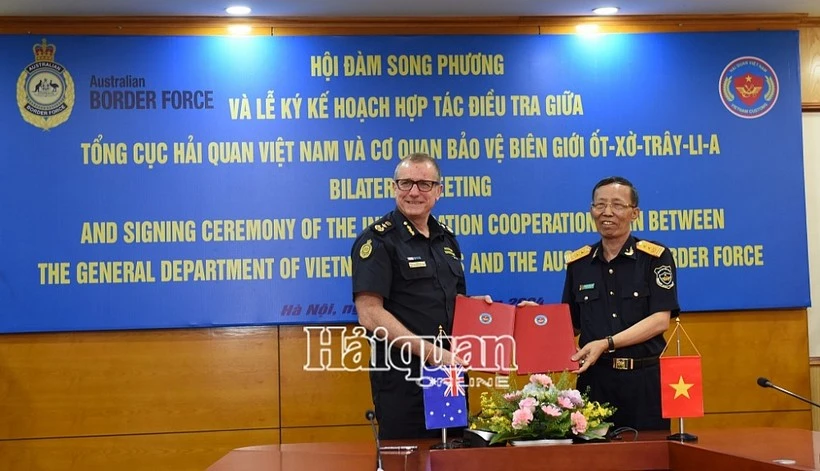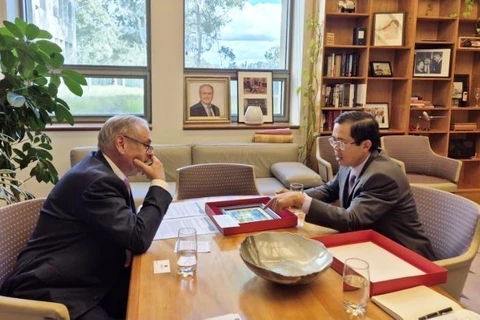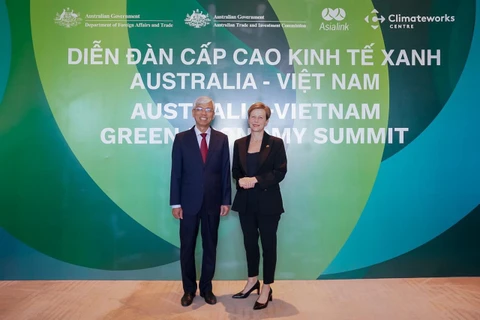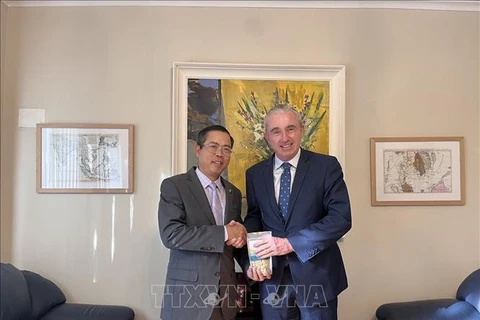
Hanoi (VNA) – The General Department of Vietnam Customs (GDVC) and the Australian Border Force (ABF) took a significant step toward enhanced cooperation by signing a new plan to collaborate on customs investigations and monitoring during talks in Hanoi on May 7.
The plan, signed by GDVC Director General Nguyen Van Can and ABF Commissioner Michael Outram, signified a commitment to sharing expertise and tackling customs violations.
This collaboration comes amid a thriving economic relationship between Vietnam and Australia. Two-way trade has reached nearly 15 billion USD in recent years, solidifying Australia's position as Vietnam's 10th largest trade partner.
Recognising this growth, both sides highlighted the importance of optimising trade facilitation with effective customs control to ensure national security and safety.
The newly signed plan outlines a collaborative approach to combating illegal commercial activities like smuggling, trade fraud, and the movement of prohibited goods, with a particular focus on drugs, tobacco, and controlled substances.
The GDVC expressed its appreciation for the ABF's ongoing support within the framework of the Container Control Programme (CCP) and its active participation in the Mekong Dragon Campaign, a regional initiative co-initiated by Vietnam.
It additionally requested the ABF's support in enhancing the capacity of its dog teachers and trainers.
The ABF side said it had appointed representatives at the Australian Embassy in Vietnam to contribute to further developing the friendly and cooperative relationship between the two sides.
Concluding the talks, both sides agreed to hold talks every two years to review progress and draft future cooperation directions./.






















